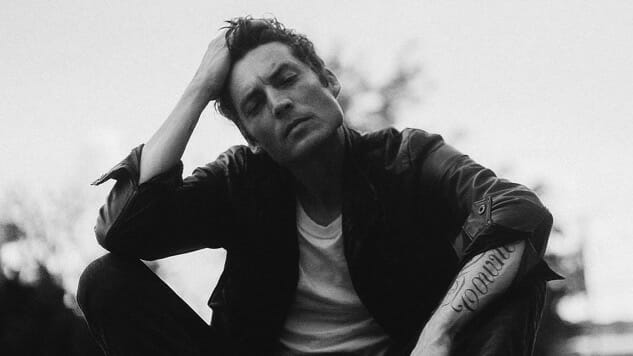Dan Layus: The Best of What’s Next

You have to hand it to former Augustana folk-rocker Dan Layus. When he delves in to a new stylistic venture, he truly commits, and nothing whatsoever can dissuade him.
Not that the singer planned to go the country route with Dangerous Things, his twangy new solo bow. But three years ago, after scoring willowy chart hits like “Boston” and “Sweet and Low,” then losing his contract with Epic Records, Augustana membership had whittled down to just Layus himself, and he was already exploring new creative frontiers, alone in his Los Angeles home studio. Eventually, he made a radical decision—to reach his full artistic potential, he ditched his band moniker, which he’d employed since its breakthrough 2005 debut All the Stars and Boulevards; packed up his wife and three kids and moved to rural Franklin, Tennessee; started composing professionally three days a week, 9-5, for Nashville publishing house Warner-Chappell Music, where he befriended, then began writing with, young Music Row talents like Maren Morris; and found himself enjoying the genre so much, he eventually penned an album’s worth of country originals that he released under his own name. To complete this “Hee-Haw”-retro transformation, his family even bought two Beauregard-the-Wonder-Dog-ish bloodhounds, naming them Ferlin and Patsy, for late C&W legends Ferlin Husky and Patsy Cline. “I don’t know—I’m channeling a past life perhaps,” he says, sighing. “And hey—why not?”
Dangerous Things dusts Layus’ warm, neighborly vocals across forlorn pedal steel in the skeletal relationship reminiscence “Driveway,” while “Destroyer” revolves around a Byrdsian guitar jangle, a foot-stomping rhythm and clever turns of phrase such as “If I had a taste of heaven, why do I feel like hell?” The title track uses pedal steel for the loping twang of a hook, with Layus drawling almost backwoods-rustic on the sing-song chorus, and “Four Rings” is set to simple, swaying piano chords and a gospel choir that gently accents his lonely plaint. It’s country, but with a subtle urban twist—ironic, city-slick, and decidedly heartfelt and believable as such. The quantum leap works.
The relocation turned into something of a research mission for Layus, who didn’t want to be seen as a dabbling blue-state dilettante. “And originally, I’d developed a taste for what we might call alternative country, and the more recent torch carriers of that sound, like Ryan Adams records from the early 2000s, plus Wilco and Uncle Tupelo and all that stuff,” he explains. “So then I dug back further into Gram Parsons, Emmylou Harris and Steve Earle, and even guys who were on the outside of rock and country, like Dwight Yoakam and Gary Stewart. And it was in that land that had a very specific audience to it, well, that’s me, that’s where I fit. So it all started with that, while we were still in Los Angeles.”
-

-

-

-

-

-

-

-

-

-

-

-

-

-

-

-

-

-

-

-

-

-

-

-

-

-

-

-

-

-

-

-

-

-

-

-

-

-

-

-








































